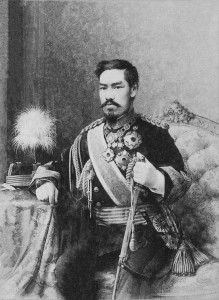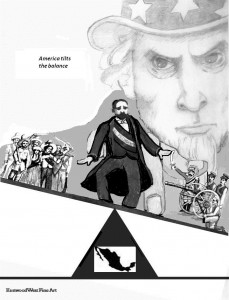The Sam and Murray Code
Posted in General on February 8th, 2016 by Eugene Finerman – Be the first to commentFebruary 8: 1904: The Russo-Japanese Began

Tevye the Dairyman?
If the Russo-Japanese War had merely been a popularity contest, Japan still would have won. The newspapers of Britain and America depicted the conflict in terms of David and Goliath. It was earnest, energetic Japan against big, brutal Russia, and the stereotypes were actually correct. So what if the Japanese had started the war–or that the fight was over the possession of a prostrate Korea? If we had to pick a favorite vulture, it was definitely Japan. (Of course, no one asked the Koreans.)
The war began with Japan’s surprise attack on the Russian naval base at Port Arthur. (Yes, the Japanese thought that the tactic would work a second time, too.) The Russians may have been surprised, but no one else was. In the preceding two months, American reporters were sent to Japan to cover the impending war. Apparently, no one in Russia read the Hearst newspapers, but when William Randolph demanded a war, the Mikado wouldn’t have dared refuse. However, the influx of American reporters caused a problem for the Japanese. A free press, even a pro-Japanese one, could report casualties and setbacks. So the Japanese attempted to confine the American journalists to hotel bars and press releases. (That tactic has also been repeated.) A few reporters managed to evade their handlers and get to the front. Of course, the Japanese army was unhappy with the uncontrolled press. No doubt a few officers were prepared to arrange accidents–but really–many American journalists would have had fatal shaving accidents with samurai swords? The Japanese thought of a more adroit way to suppress the coverage. Cameras would be arrested for criminal activity. Reporters could write unfettered reports, but there would be no photographs for evidence—other than what the Japanese approved.
Russia’s humiliating defeat could be attributed to the imbecilic Tsar, his incompetent generals or his hapless admirals. But Russia’s official scapegoat was the Jews. This seems surprising since very few of the Japanese generals and admirals were Jewish. However, it could have been an honest mistake. Mikado does sound vaguely Hebrew, one could easily confuse Rashomon with Rosh ha Shonah, and weren’t the Japanese always talking about their Sam and Murray Code?

